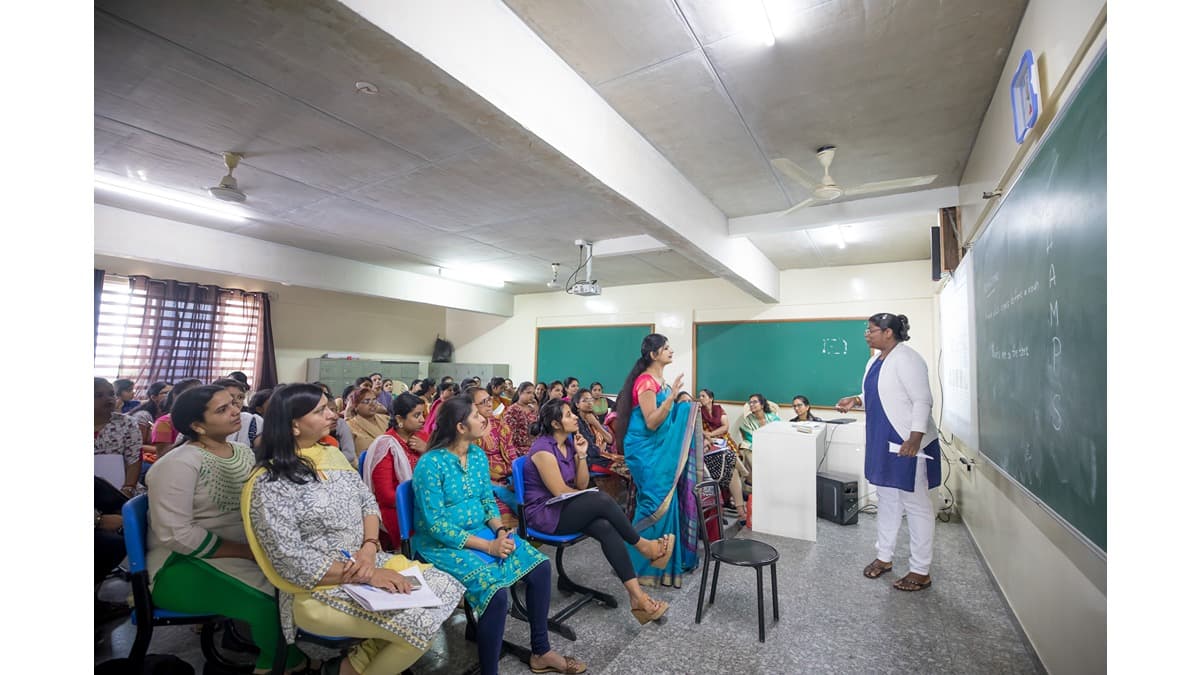Communication Channels Between Parents and Teachers
By Pinkey Sharma |
Date 21-09-2023

Table of Contents
Admissions Open for
Introduction
In the intricate tapestry of education, effective communication between parents and teachers emerges as a vital thread that weaves together the holistic development of students. This open and continuous dialogue serves as a bridge, connecting the two essential pillars of a child's academic journey. It ensures that parents are well-informed about their child's progress, strengths, and areas that may require improvement. Furthermore, it empowers parents to actively participate in their child's educational odyssey, offering unwavering support and guidance along the way. In this comprehensive exploration, we delve into the significance of parent-teacher communication, its evolution in the digital age, and the transformative impact it has on student success.
Effective Communication
At the heart of effective parent-teacher communication lies the principle of transparency. When parents and teachers engage in open dialogue, they create an environment where information flows freely, unburdened by barriers or gaps. Regular updates on assignments, assessments, and classroom activities ensure that parents are not only aware of their child's academic progress but also well-versed in their overall development.This transparency cultivates trust and confidence, allowing parents to have faith in the educational institution and the educators entrusted with their child's education. Parents can rest assured that they are active participants in their child's journey, making informed decisions that align with their child's best interests. Moreover, this collaborative partnership prioritizes the well-being and success of the student, making it a win-win situation for all stakeholders involved.
The Digital Transformation
The integration of technology has heralded a revolution in the realm of parent-teacher communication. Online platforms and applications have emerged as powerful tools, providing instant access to assignments, grades, and classroom updates. These digital platforms effectively bridge the geographical gap between the classroom and home, transforming how parents and teachers interact.Parents now have the convenience of monitoring their child's progress in real-time, without the constraints of physical presence. They can access grades, review assignments, and stay updated on classroom activities with a few clicks or taps on their devices. This seamless communication enhances parents' involvement in their child's education, making it a dynamic and ongoing process rather than a periodic event.
Fostering Collaborative Partnerships
Effective parent-teacher communication goes beyond transmitting information; it nurtures collaborative partnerships. This collaborative spirit extends beyond sharing successes; it serves as a lifeline for early intervention in case of challenges or concerns.Teachers, armed with insights into students' behavior, study habits, and social interactions, can flag issues to parents promptly. These insights provide a holistic view of the student, allowing parents to address concerns promptly. In return, parents provide teachers with valuable information about their child's learning preferences and individual needs. This exchange of information empowers educators to tailor their approach to each student, ensuring that no child is left behind.Moreover, when parents and teachers work together, they create a support network for students that transcends the classroom. It sends a powerful message to students that their education is a shared responsibility, instilling a sense of accountability and motivation in them. This collaborative effort strengthens the bond between parents, teachers, and students, forging a community dedicated to nurturing student growth and development.
Inclusive Communication
Inclusive communication is a cornerstone of effective parent-teacher partnerships. Educational institutions recognize the diversity of their student body, and this diversity extends to the needs of parents. Schools have evolved to offer multiple channels of communication, ensuring that all parents, regardless of their background or circumstances, can actively participate.For some parents, face-to-face meetings may be the preferred mode of communication, fostering a deeper connection with educators. Others may find digital platforms or email more convenient, allowing for flexibility in their busy schedules. Schools often conduct workshops, seminars, and orientations to educate parents on effective communication and engagement strategies, bridging any gaps in understanding.Additionally, inclusive communication acknowledges that not all parents may have the same level of involvement or understanding of the educational process. Schools strive to provide resources, guidance, and support to help parents become effective partners in their child's education. This inclusive approach ensures that every parent, regardless of their background or circumstances, can play an active and meaningful role in their child's academic journey.
Conclusion
In conclusion, fostering robust and effective communication channels between parents and teachers is not just an ideal; it is a prerequisite for student success. Open dialogue, integration of technology, collaborative efforts, and inclusive communication create an environment where parents and teachers work together to support the growth and development of students. By prioritizing effective communication, educational institutions ensure that students receive holistic support both in and out of the classroom.The transformative impact of effective parent-teacher communication extends beyond academic success. It cultivates a sense of partnership, trust, and shared responsibility, reinforcing the idea that education is a journey that all stakeholders embark upon together.
Other Related Sections
NCERT Solutions | Sample Papers | CBSE SYLLABUS| Calculators | Converters | Stories For Kids | Poems for Kids| Learning Concepts | Practice Worksheets | Formulas | Blogs | Parent Resource
CBSE Schools In Popular Cities
- CBSE Schools in Bangalore
- CBSE Schools in Mumbai
- CBSE Schools in Pune
- CBSE Schools in Hyderabad
- CBSE Schools in Chennai
- CBSE Schools in Gurgaon
- CBSE Schools in Kolkata
- CBSE Schools in Indore
- CBSE Schools in Sonipat
- CBSE Schools in Delhi
- CBSE Schools in Rohtak
- CBSE Schools in Bhopal
- CBSE Schools in Aurangabad
- CBSE Schools in Jabalpur
- CBSE Schools in Jaipur
- CBSE Schools in Jodhpur
- CBSE Schools in Nagpur
- CBSE Schools in Ahmednagar
- CBSE School In Tumkur

Call Us to know more about Orchids
Swipe Up


.jpg&w=1920&q=80)













